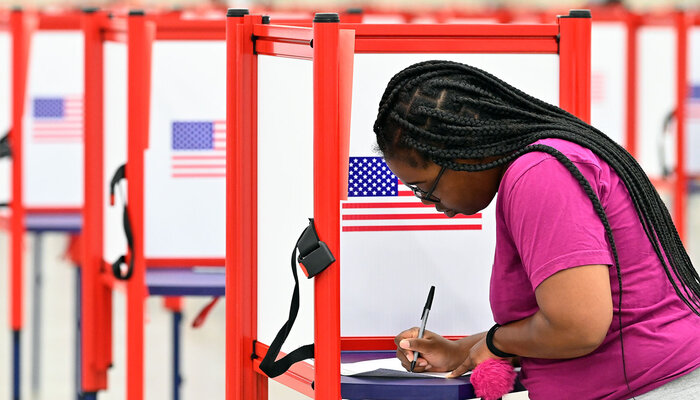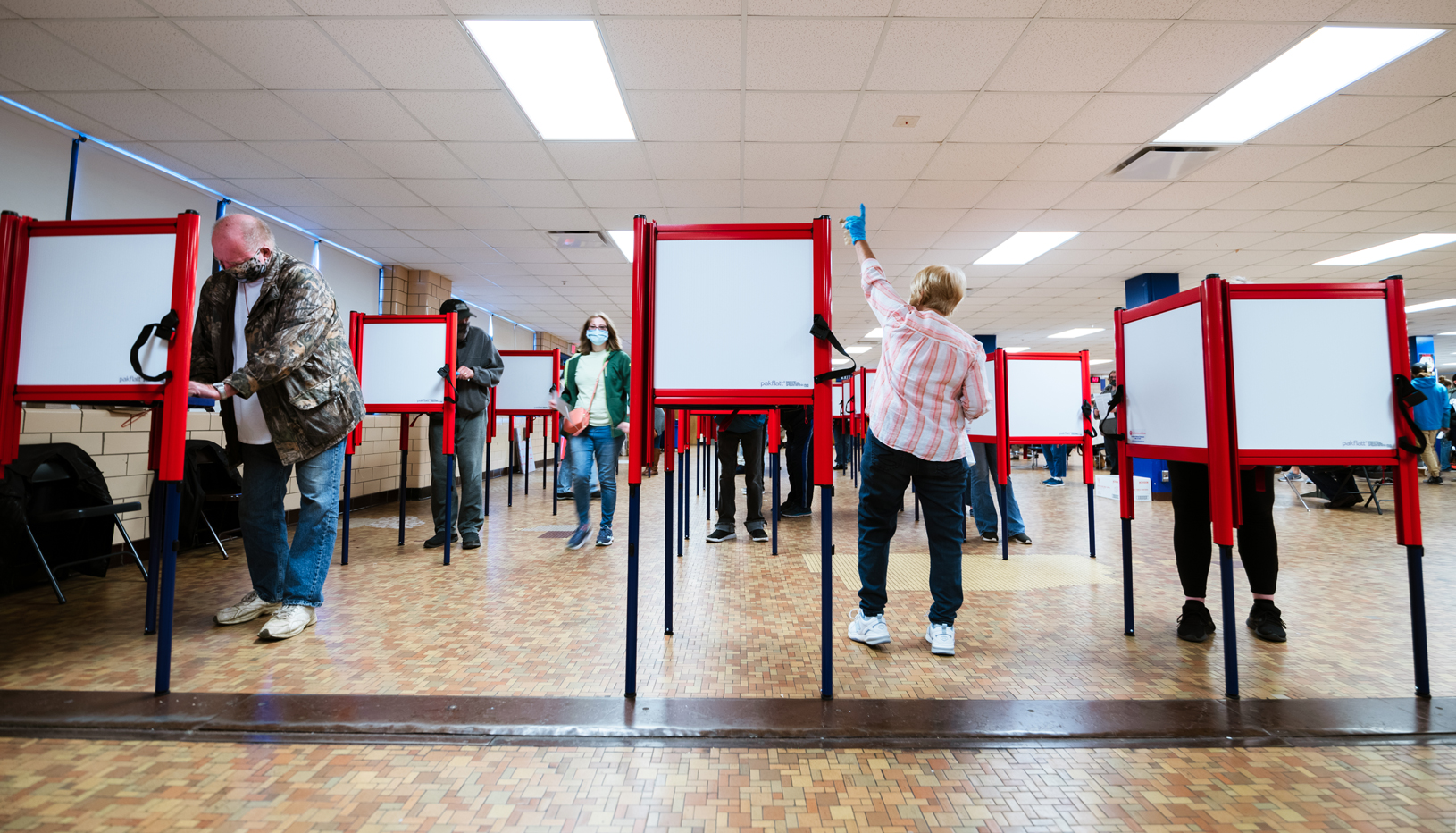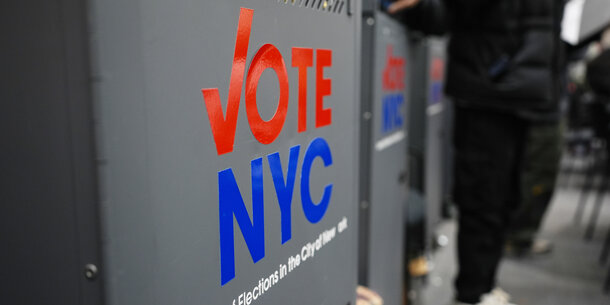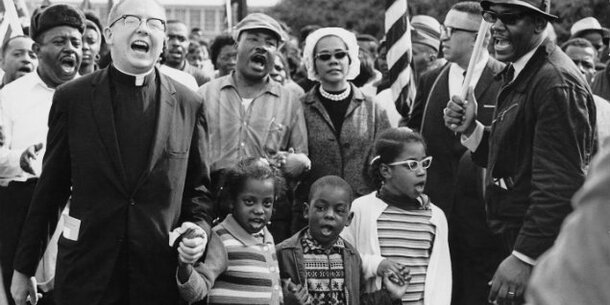You’re reading The Briefing, Michael Waldman’s weekly newsletter. Click here to receive it every week in your inbox.
Last year, the Freedom to Vote Act came achingly close to enactment. It passed the House, had a majority of the Senate in support, and the president was ready to sign it. Only the refusal of two senators to change filibuster rules stopped the most important voting rights legislation in half a century from becoming law.
Today, the Freedom to Vote Act was reintroduced in Congress. It would set national standards for voting rights and election administration. It presents a comprehensive solution to the most significant threats to our democracy — voter suppression, gerrymandering, election subversion, and more — and would block the worst excesses of the election denial movement.
Republican lawmakers will oppose the bill. But they stand athwart history.
For years, we have watched with alarm as an election denial movement threatened basic tenets of American democracy. When Donald Trump cynically launched a baseless attack on U.S. elections, he didn’t foresee that he would catalyze a powerful democracy movement. For the first time in generations, voters now view the protection and expansion of our democracy as a top priority.
This growing movement has shown power over the past 12 months. In swing states, voters rebuffed secretary of state candidates such as Kristina Karamo in Michigan and Mark Finchem in Arizona, who threatened to undermine elections from within. Election deniers underperformed other Republicans. Ballot initiatives expanding access to voting passed in many states last year. Even the Supreme Court, breaking its pattern of more than a decade, stepped back from further gutting the Voting Rights Act and rejected a crackpot idea that would have given state legislatures unfettered power.
But the assault on democratic institutions continues. In Georgia, Texas, and beyond, legislatures continue to erect barriers to voting. Legislators in several states have curbed voter registration drives, restricted access to mail voting, and tightened voter ID requirements. Election officials are being threatened with politically motivated prosecution. Partisan actors are preparing bogus election audits in a desperate attempt to manufacture irregularities. Election deniers still walk the halls of Congress. And among too many Americans, demagogues diminish trust in elections.
That is why Congress should enact baseline national standards. Clear, pro-voter rules will bolster trust and enhance participation. Congress can modernize the system, drawing on best practices from around the country. Encouragingly, the Freedom to Vote Act will carry the designation of S. 1 and H.R. 11 (the number carried by the first bill introduced by the minority party). Congressional leaders are making it clear: democracy reform remains a central goal.
This reform didn’t pass last year — isn’t it futile to try again?
History teaches otherwise. Meaningful voting rights legislation failed in 1957 and 1960. It should have been included in the 1964 Civil Rights Act but was not. (Lyndon Johnson told Martin Luther King Jr. that voting rights legislation would solve “70 percent of your problems.”) It wasn’t until the Bloody Sunday massacre galvanized the American public that the Voting Rights Act finally crossed the finish line.
We are in a great fight for the future of American democracy. The Freedom to Vote Act again flies high a flag with bold colors.




